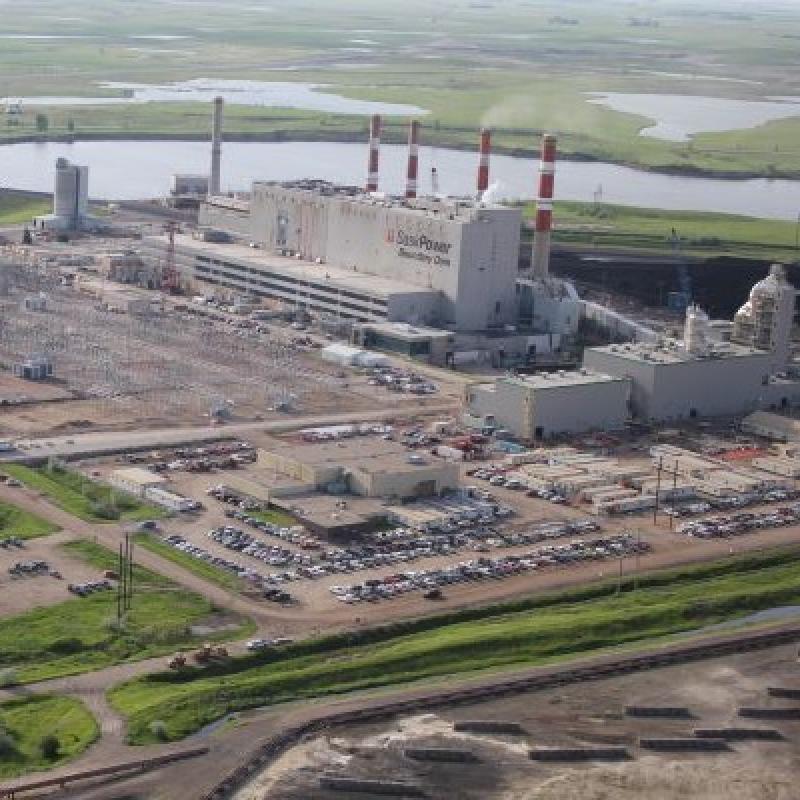
The Alberta government has contributed $3 million in funding for the Regina-based International CCS Knowledge Centre to develop and share best practices from Canadian carbon capture and storage (CCS) projects for the rest of the country and the world.
The funds will support the world’s first open-source repository of CCS knowledge to “share knowledge globally to help build a greener future,” its president and CEO James Millar said in an interview with SustainableBiz.
With growing interest in CCS from governments and industries, the centre will offer information and resources to help interested parties minimize risk and gain approvals for their projects by learning from the successes and failures of past Canadian CCS projects.
“We look at it as a real opportunity to share knowledge, because if you’re sharing knowledge, you’re helping others that are going to build future projects,” Millar explained.
How the centre was formed
The non-profit was jointly founded in 2016 by Australian mining giant BHP Group Limited and Canadian Crown corporation SaskPower. It was formed after the start of the Boundary Dam Power Station carbon-capture facility near Estevan, Sask., the world’s first power plant to use CCS.
BHP, Millar said, felt it would be beneficial to learn from the development of the $900-million CCS facility, which was completed two months over schedule and four per cent over budget. This made it a successful engineering feat, he said.
The International CCS Knowledge Centre’s website features resources like documents, videos, fact sheets, papers and abstracts regarding CCS.
It began to help heavy-emitting industries interested in CCS over the past two years, such as cement, fertilizers, mining and power generation.
Sharing best practices with a knowledge hub
With the $3 million seed funding, the centre will develop a business and implementation plan for the knowledge hub, how it will operate and how it plans to deliver the information. The first task will be to hire someone to develop a business plan, and based on the plan, ensure it has the appropriate support to get the hub running, Millar said.
The impetus for the national knowledge hub originated from talks between the CCS industry, the Canadian government and the provincial governments of Alberta and Saskatchewan.
Companies with $250 million or more in CCS expenses that tap into the relevant investment tax credit are required to share knowledge about their CCS facility operations on the Natural Resources Canada website via annual reports. But industry figures were not satisfied with such a format.
“We said, with the greatest respect, putting a report on a website is not true knowledge sharing,” Millar recounted. They sought the opportunity to ask questions and engage in a back-and-forth conversation over one to two days.
He said the centre meets that industry demand by curating the knowledge in the hub and working with companies that have CCS projects in place, or are developing them.
“It all comes down to if you can lower risk, reduce costs and improve performance, let’s learn from those who have done it. And it’s not just about positive learnings, it’s the warts, it’s the negative learnings.”
By having a conversation about how CCS projects were executed and allowing teams to visit CCS facilities, companies can learn what worked well and what did not for project planning, Millar said. De-risking the CCS project will help boards of directors and senior management teams green light these types of expensive projects.
More recently, Millar said the centre assisted with the Alberta-based Heidelberg Cement’s feasibility study for its impending CCS project, which will be the first in world to produce emissions-free cement.
The centre has also supported overseas power facilities with CCS applications, such as the VPI Immingham project in the U.K.
Accelerating CCS in Canada and the world
The Canadian government has set out to capture 15 million tonnes of carbon per year, almost four-times the current total of four million tonnes per year.
Fossil fuels will remain a part of the world’s energy and industry systems, Millar said, and CCS will be crucial to decarbonize heavy-emitting industries like cement and steel that often don't get the same attention as oil and gas. He referenced research from the Intergovernmental Panel on Climate Change and the International Energy Agency to point out its value in attaining national climate targets.
“It’s better to bail with what some would call a rusty bucket in a boat,” Millar said, “than sit in the boat and continue to debate about the perfect solution.”
With more funding pouring into CCS from Canada’s investment tax credits, the U.S. Inflation Reduction Act, the U.K.’s £20 billion investment, and Australia and Germany showing interest, Millar hopes the knowledge hub will help not only Canada, but the world.
“We should be supportive. It’s every tool in the toolbox. It’s not an either-or of renewables versus CCS. It’s, ‘let’s do everything we can to keep those emissions from going into the atmosphere.’ ”










